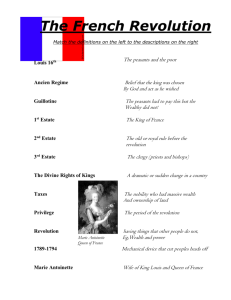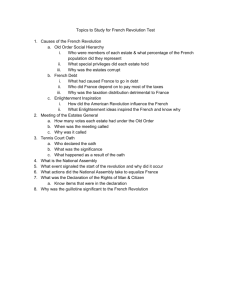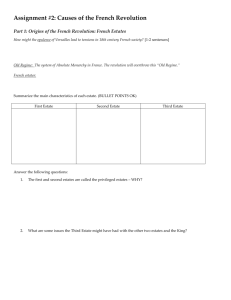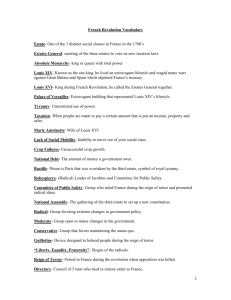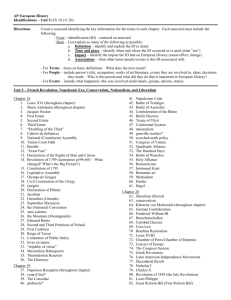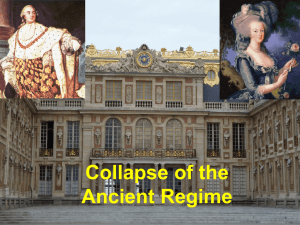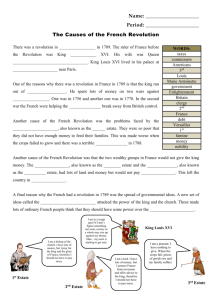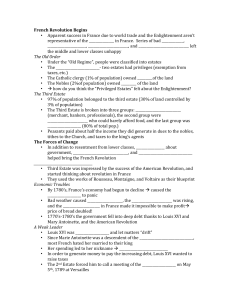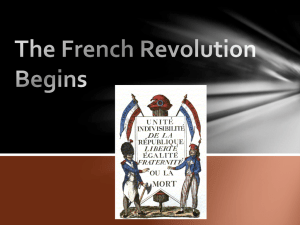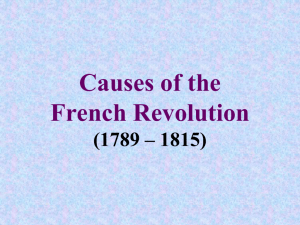The French Revolution
advertisement
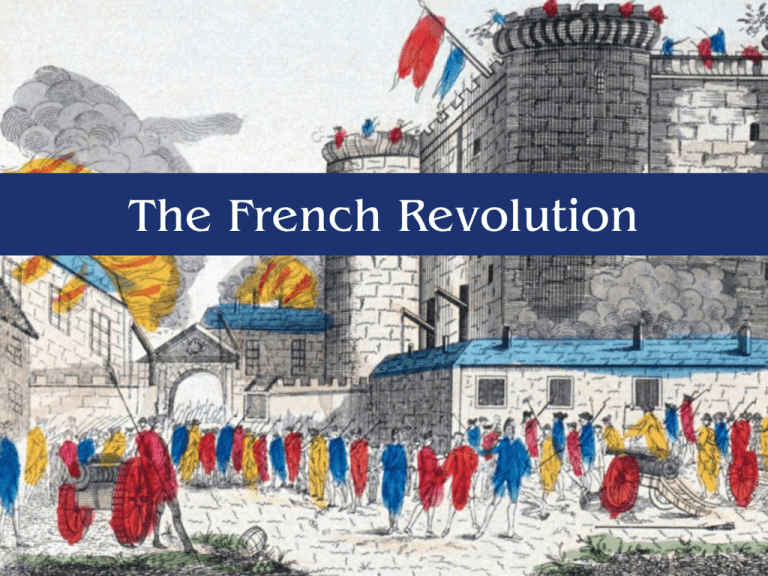
The French Revolution Essential Questions • What changes in political and economic conditions in the 1700s led to the crisis of the late 1700s and the outbreak of the French Revolution? • How important in causing the French Revolution were the new Enlightenment ideas about natural rights, democracy, limited government, religious tolerance, and the use of reason in solving social and political problems? • What, if anything, could king Louis XVI have done differently to keep the rising anger and frustration in France from triggering a full-scale revolution? Essential Questions (continued) • What role did the poor people of Paris and peasants in the countryside play in shaping the Revolution and the way it unfolded? • Why did the Revolution go through the violent phase known as the Reign of Terror? Was that phase inevitable? • In what ways did the Revolution fail, in what ways was it thwarted or reversed, and in what ways were its basic ideas and ideals realized? Absolutism • Absolute monarchs didn’t share power with a counsel or parliament • “Divine Right of Kings” King James I of England The Seigneurial System • Feudal method of land ownership and organization • Peasant labor Receiving a seigneurial grant Louis XIV • Ruled from 1643–1715 • Reduced the power of the nobility • Fought four wars • Greatly increased France’s national debt The Seven Years’ War Louis XV • • • • Louis XV War fought in Europe, India, North America France ends up losing some of its colonial possessions Increases French national debt French and English troops fight at the battle of Fort St. Philip on the island of Minorca The Three Estates • First Estate: clergy • Second Estate: nobility • Third Estate: the rest of society • The Estates General Cartoon depicting the three Estates The Third Estate • Taxation • Crop failures
